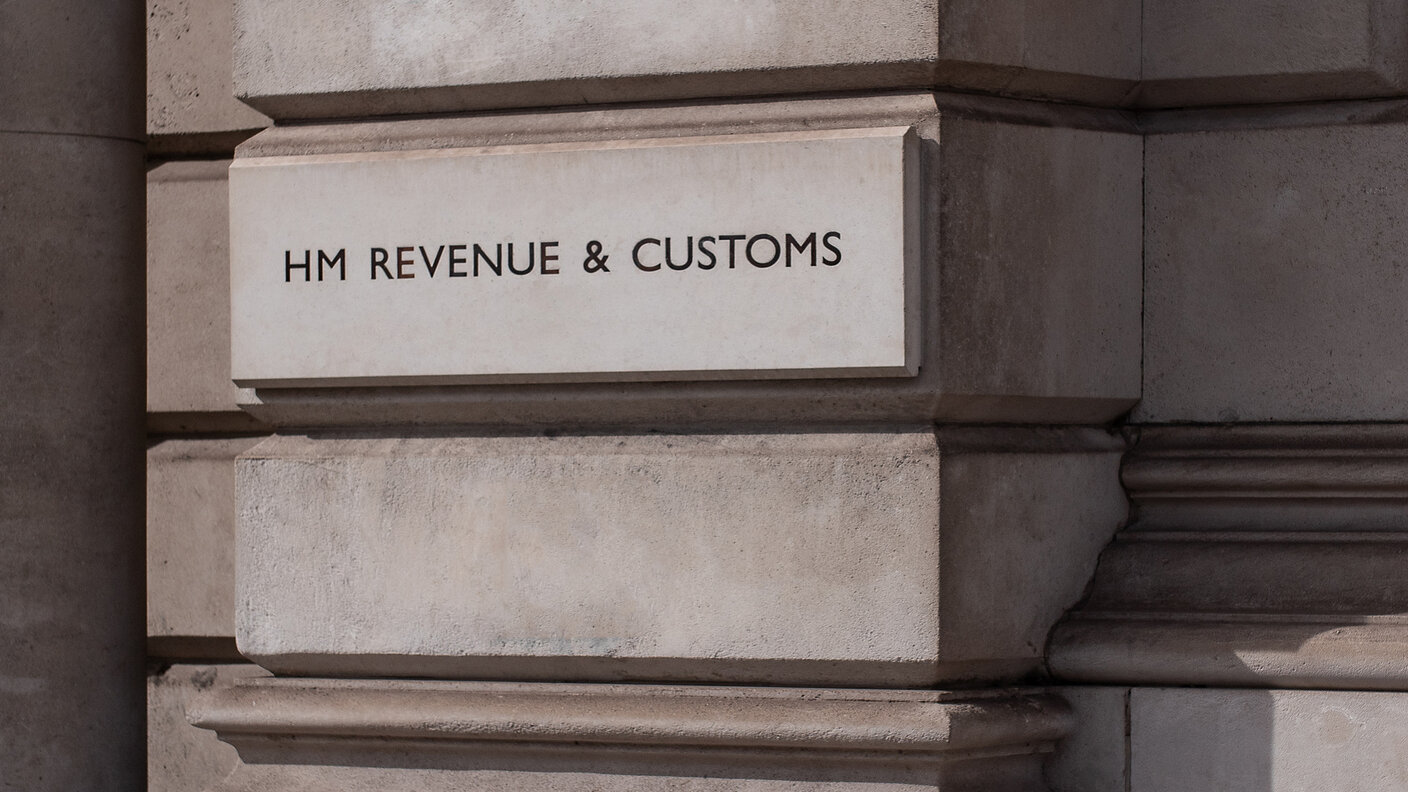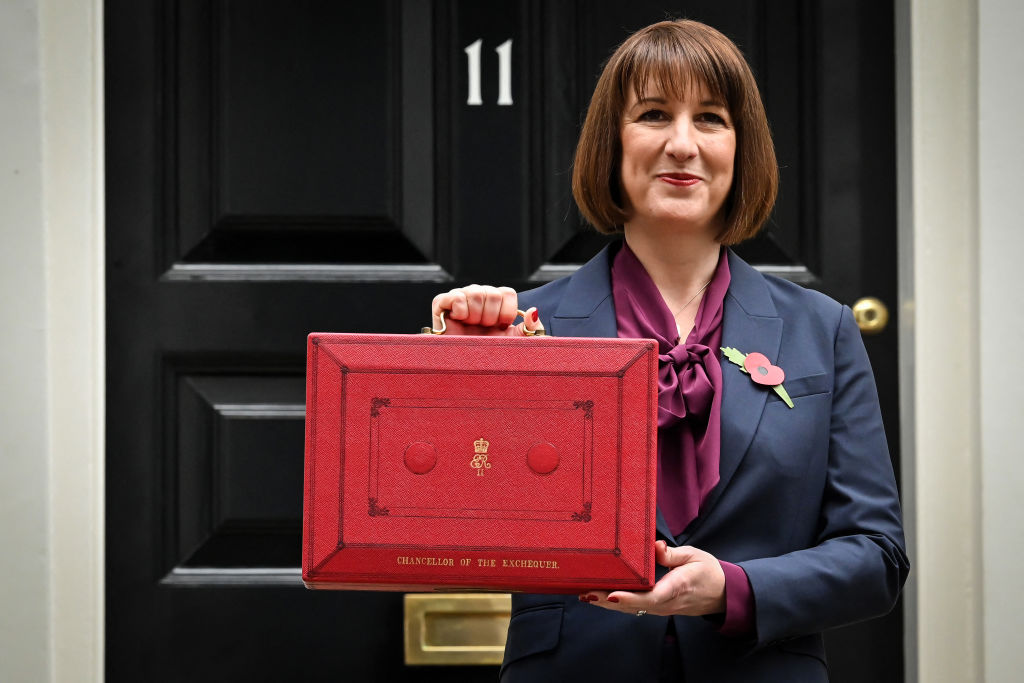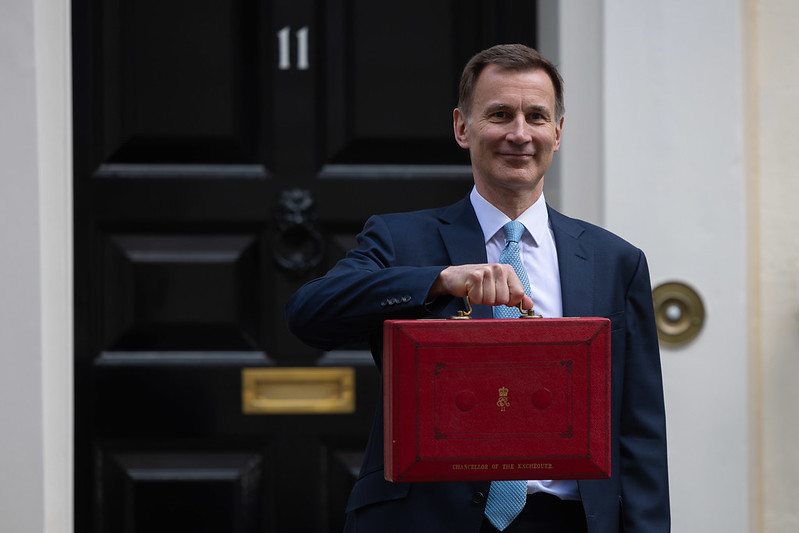Cut taxes? No, reform them instead
The way the state raises money is far too complicated, says Merryn Somerset Webb. Time for a radical revamp.


Get the latest financial news, insights and expert analysis from our award-winning MoneyWeek team, to help you understand what really matters when it comes to your finances.
You are now subscribed
Your newsletter sign-up was successful
Want to add more newsletters?

Twice daily
MoneyWeek
Get the latest financial news, insights and expert analysis from our award-winning MoneyWeek team, to help you understand what really matters when it comes to your finances.

Four times a week
Look After My Bills
Sign up to our free money-saving newsletter, filled with the latest news and expert advice to help you find the best tips and deals for managing your bills. Start saving today!
The UK is in a little financial trouble. Public-sector spending has already reached £1.2trn, or 48% of GDP. That’s another peacetime record. Total government debt is now more than 100% of GDP (up from below 30% before the global financial crisis). That wasn’t a particularly big deal last year. Low rates meant that interest payments were exceptionally low in 2022. Unfortunately that is about “to change dramatically”, says MacroStrategy’s James Ferguson. Firstly, because 28% of our outstanding debt is index-linked. That will raise interest rates by at least 2.5% of GDP this year.
At the same time, it seems clear that the UK is heading for at least a slowdown (judging by the way our money supply is shrinking) and possibly a recession. That has historically added roughly 2%-2.5% of GDP to welfare costs. Not long now and government spending will make up a larger percentage of GDP than the private sector does.
In short, the UK state needs all the money it can get its hands on – note that the tax take comes to more like 35% of GDP than 48%. So you would think that the last discussion the UK’s political classes would be having now is about how to cut taxes. Not so. It seems to make up a large part of what they do talk about. A large part of the Conservative party is keen to ditch inheritance tax (quite rightly – see my past articles on IHT at moneyweek.com). And Rishi Sunak says he wants to cut income tax or National Insurance Contributions (NICs) by two percentage points before the next election. He just isn’t sure which yet.
MoneyWeek
Subscribe to MoneyWeek today and get your first six magazine issues absolutely FREE

Sign up to Money Morning
Don't miss the latest investment and personal finances news, market analysis, plus money-saving tips with our free twice-daily newsletter
Don't miss the latest investment and personal finances news, market analysis, plus money-saving tips with our free twice-daily newsletter
It seems unlikely that the abolition of IHT will come anywhere near fruition. “Sunak slashes taxes for super rich” seems like a bad headline to kick off an election campaign with. It also seems unlikely that there will be any particularly eye-catching cuts to income taxes given the UK’s miserable fiscal situation. Accountancy firm RSM notes that a 2p cut to income tax would cost £13.7bn if introduced next year. A 2p cut in NICs would cost more like £9.6bn. The number is lower because while income tax is charged not just on earnings but other sources of income, too (rental income for example), NICs are charged only on earnings (and not on the earnings of those under 16 or over state pension age and not on pension income).
The problem for Sunak however is that he might not get as much electoral bang for his buck with NI as income tax. Why? Because the population doesn’t understand it quite so well. Remember, says RSM, that in 2001 Labour won the election with a pledge not to raise income tax, but promptly bumped up NICs instead? Sneaky. But they got away with it.
That said, that Sunak is even considering which to go for between the two, should remind us all that these taxes are both the same thing – income taxes – and that the pointless distinction between them creates both admin hell and a depressing lack of transparency. There is no special insurance fund in the UK that pays for social care and welfare, however much people like to think there is. It all just comes out of the same pot. Why not just say it as it is and merge them?
Part of the answer will be that from the government’s point of view, more transparency is not a good thing at all. Most people in the UK who pay tax will tell you we have three rates of income tax, 20%, 40% and 45%. This isn’t true. Add in NICs, which start at 12% and fall to 2% at the same time as the income tax threshold moves to 40%, and you will see that those rates are 32%, 42% and 47%. Quite high (and much higher when you add in student loan repayments).
There is also the fact that concessions would have to be paid to those not currently paying NICs. So we would in the short term at least all suddenly become aware of the fact that pensioners and those living off savings rather than earned income pay less income tax than the rest of us. I can’t see our already irritated young being particularly pleased by that.
Honesty is the best policy
Transparency doesn’t suit everyone. But over time honesty might. With the truth out there about how high UK income taxes already are, we might consider rebalancing towards a wider tax base (the Scandinavian countries our governments so envy do not rely, as we do, on the top 1% of earners paying 30% of income taxes), and taxing unearned income and capital gains in the same way we do earned income. We might even demand that our money is better spent: note that even in the year before Covid the government lost £5.5bn in fraud, around the same as it raised in IHT in 2018-2019 (doesn’t make you feel good if you were one of the many paying that, does it?).
Simplifying the insanely long and complicated UK tax code (one of the longest in the world, possibly the longest in the world) is not exactly a new idea. Nor is combining NI and income tax: the Office of Tax Simplification offered the government some ideas on it seven years ago.
But it is important: we have a long-term growth and productivity problem in the UK. Our overcomplicated, opaque and confusing tax system may be part of the reason why. As RSM says, if Sunak is serious about cutting taxes, cutting NI will cost him less up front. But revamping the whole income tax system would be both bolder – and, in the long term – better.
Get the latest financial news, insights and expert analysis from our award-winning MoneyWeek team, to help you understand what really matters when it comes to your finances.

-
 Early signs of the AI apocalypse?
Early signs of the AI apocalypse?Uncertainty is rife as investors question what the impact of AI will be.
-
 Reach for the stars to boost Britain's space industry
Reach for the stars to boost Britain's space industryopinion We can’t afford to neglect Britain's space industry. Unfortunately, the government is taking completely the wrong approach, says Matthew Lynn
-
 What has changed with employers’ National Insurance – and how will it impact you?
What has changed with employers’ National Insurance – and how will it impact you?Will you feel the effects of the National Insurance hike, as businesses warn of redundancies, smaller pay rises and higher inflation?
-
 Conservatives pledge to cut National Insurance again – how much could you save?
Conservatives pledge to cut National Insurance again – how much could you save?News A 2p reduction in National Insurance is a key feature of the Tory’s general election manifesto.
-
 Workers set for new national insurance tax cut – how much will you save?
Workers set for new national insurance tax cut – how much will you save?News National insurance tax rates have fallen but frozen allowances may limit the benefits.
-
 Spring Budget: What the latest National Insurance cut means for you
Spring Budget: What the latest National Insurance cut means for youNews Chancellor Jeremy Hunt announced a 2p cut in National Insurance in his latest fiscal update – how much could you actually save?
-
 Budget 2024: National Insurance cut, a new British ISA, and reform of the child benefit charge - here’s what has been announced
Budget 2024: National Insurance cut, a new British ISA, and reform of the child benefit charge - here’s what has been announcedThe chancellor has announced a host of changes, including cutting National Insurance again, and abolishing some tax reliefs. Here’s how the Budget will affect your finances.
-
 Brace for a year of tax rises
Brace for a year of tax risesThe government is strapped for cash, so prepare for tax rises. But it’s unlikely to be able to squeeze much more out of us.
-
 Inheritance tax receipts hit £1.2bn
Inheritance tax receipts hit £1.2bnNews More people are being hit by inheritance tax amid rising property prices - and 16m are unaware of whether or not their families could be left to pay a bill when they die.
-
 HMRC launches one week warning for tax credit renewals
HMRC launches one week warning for tax credit renewalsNews Tax credit customers have until 31 July to submit renewals amid a scam warning from HMRC